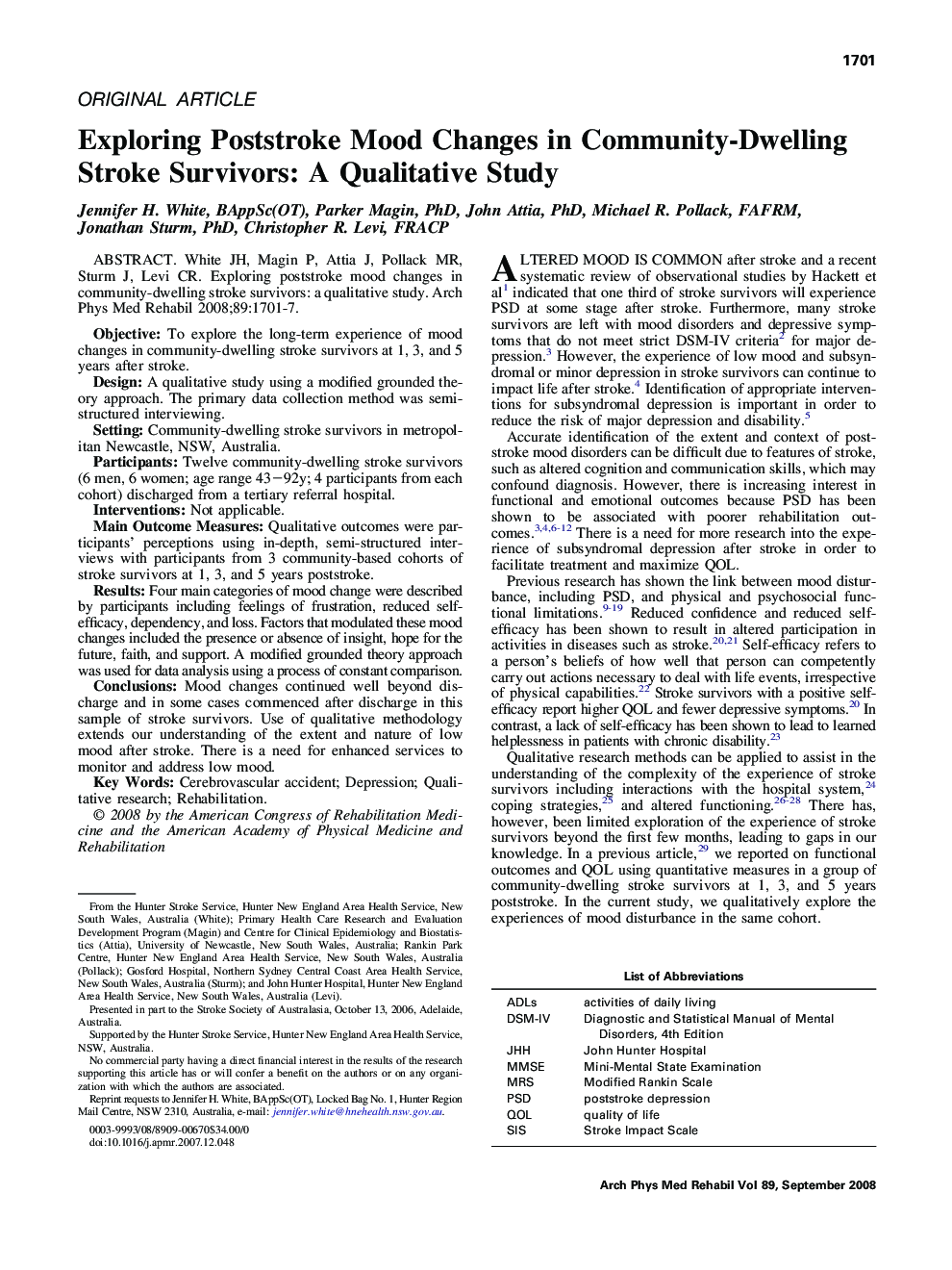| Article ID | Journal | Published Year | Pages | File Type |
|---|---|---|---|---|
| 3450444 | Archives of Physical Medicine and Rehabilitation | 2008 | 7 Pages |
White JH, Magin P, Attia J, Pollack MR, Sturm J, Levi CR. Exploring poststroke mood changes in community-dwelling stroke survivors: a qualitative study.ObjectiveTo explore the long-term experience of mood changes in community-dwelling stroke survivors at 1, 3, and 5 years after stroke.DesignA qualitative study using a modified grounded theory approach. The primary data collection method was semi-structured interviewing.SettingCommunity-dwelling stroke survivors in metropolitan Newcastle, NSW, Australia.ParticipantsTwelve community-dwelling stroke survivors (6 men, 6 women; age range 43−92y; 4 participants from each cohort) discharged from a tertiary referral hospital.InterventionsNot applicable.Main Outcome MeasuresQualitative outcomes were participants' perceptions using in-depth, semi-structured interviews with participants from 3 community-based cohorts of stroke survivors at 1, 3, and 5 years poststroke.ResultsFour main categories of mood change were described by participants including feelings of frustration, reduced self-efficacy, dependency, and loss. Factors that modulated these mood changes included the presence or absence of insight, hope for the future, faith, and support. A modified grounded theory approach was used for data analysis using a process of constant comparison.ConclusionsMood changes continued well beyond discharge and in some cases commenced after discharge in this sample of stroke survivors. Use of qualitative methodology extends our understanding of the extent and nature of low mood after stroke. There is a need for enhanced services to monitor and address low mood.
